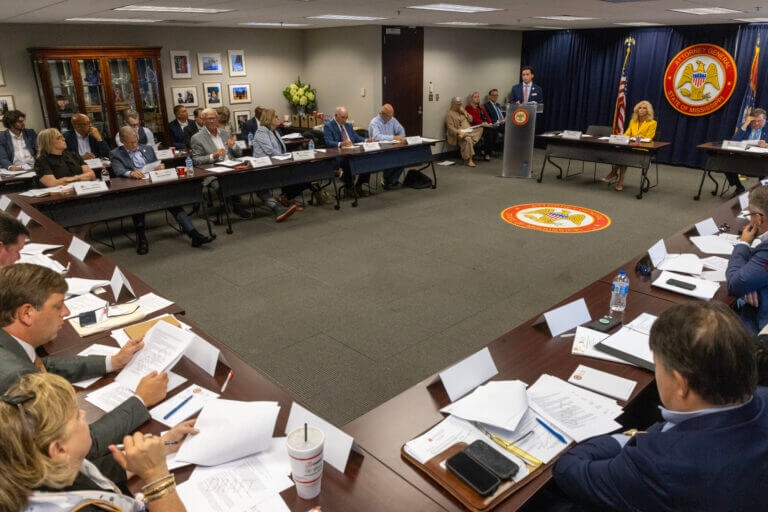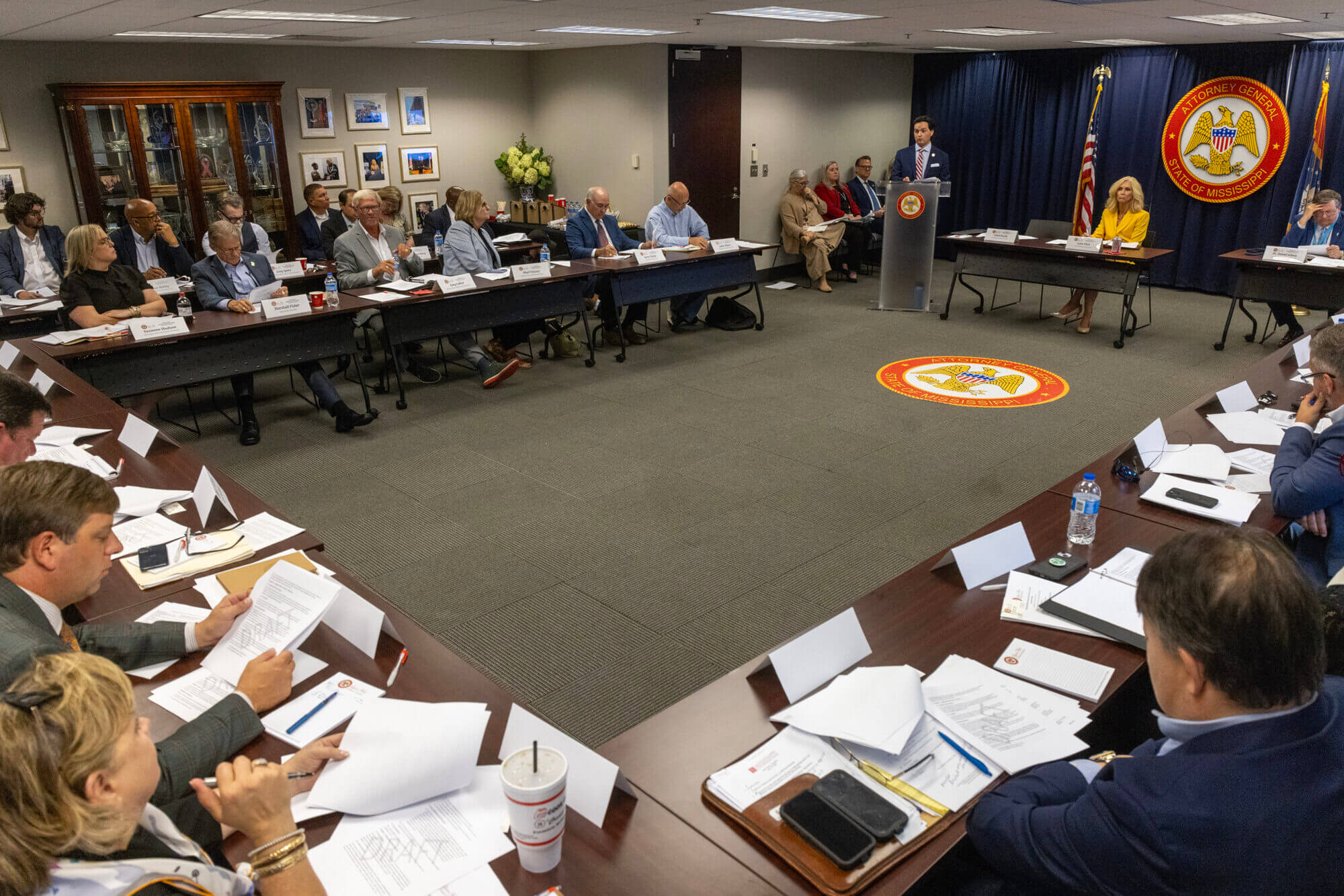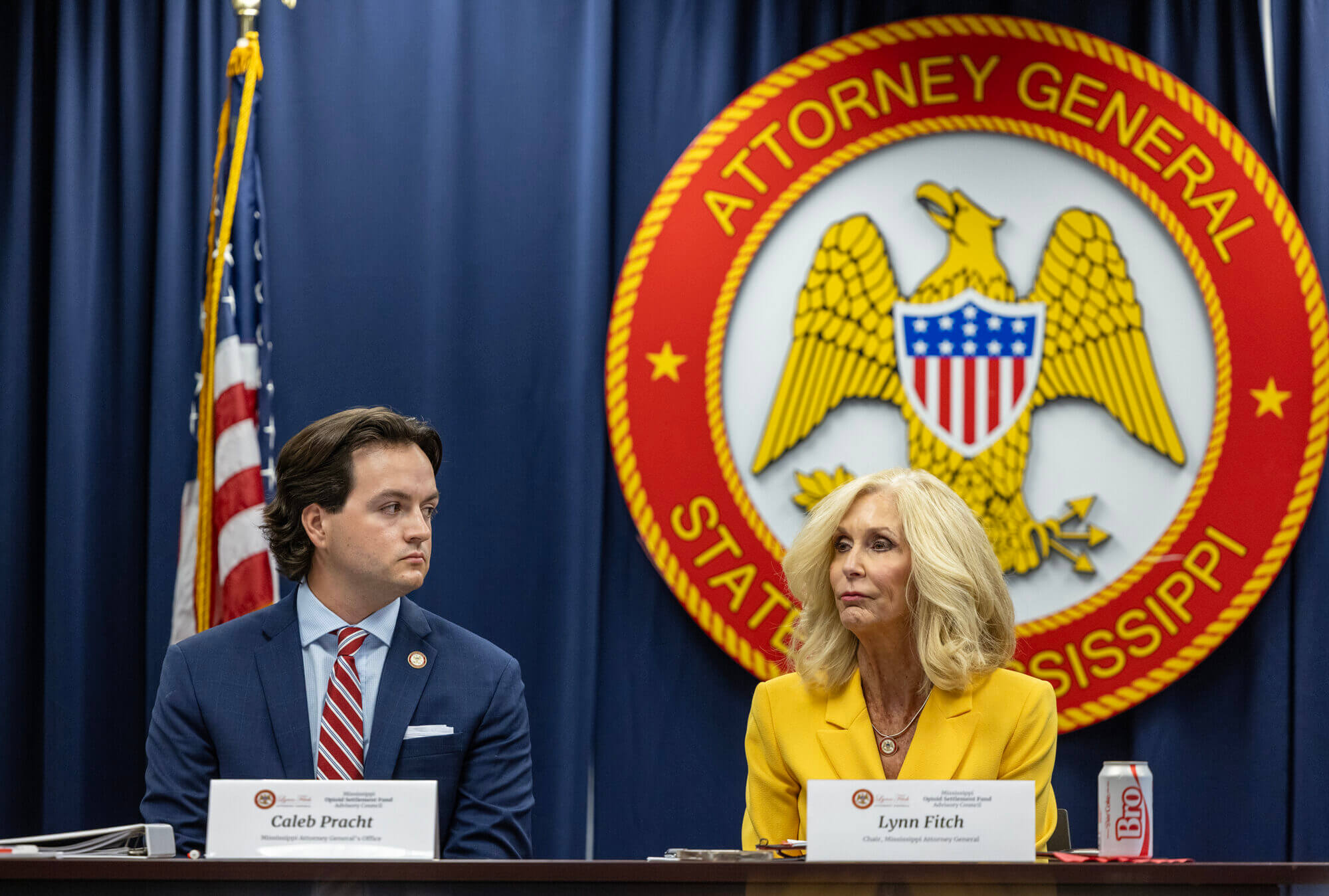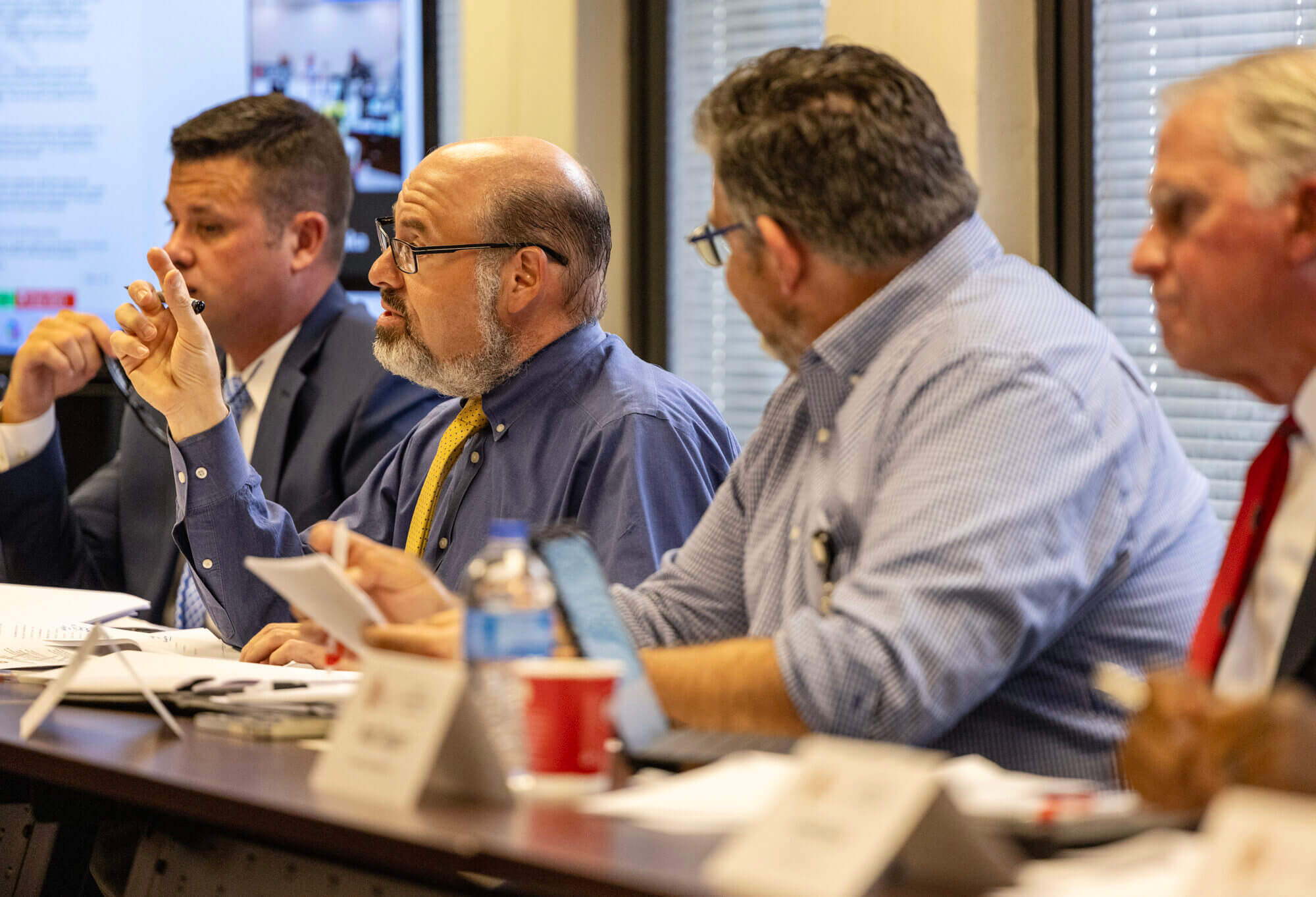

The committee tasked with overseeing most of Mississippi’s opioid settlement dollars may struggle to keep up with the tight timeline the Legislature prescribed last spring, a plan that lawmakers finalized years after most states enacted their settlement spending plans.
In Jackson on Wednesday, the Opioid Settlement Fund Advisory Council met for the first time to discuss how Mississippi should go about distributing hundreds of millions of settlement dollars, money paid out by pharmaceutical companies for their roles in catalyzing hundreds of thousands of overdose deaths.
Before the meeting started, council chair and Mississippi Attorney General Lynn Fitch provided the 15 voting members and 22 nonvoting participants draft documents of how the committee could operate. The proposals included rules the advisory committee should follow, information to provide groups looking to apply for settlement dollars the state is dedicating to address addiction and an application for making that request.

Council members raised concerns about Fitch’s documents. Mississippi Supreme Court Chief Justice Michael Randolph, one of the voting council members, said he worried the materials were missing important information and could lead to the state not addressing the public health catastrophe at hand.
Randolph joined over a video call, and he told Mississippi Today after the meeting that severe technical difficulties made it hard for him to hear what was happening in Jackson.
But he affirmed that his biggest priorities for the council are helping Mississippi families who’ve suffered most from the addiction crisis and ensuring this public money isn’t spent on expenses unrelated to the public health crisis at hand, as Mississippi had done with its tobacco settlement funds and federal Temporary Assistance for Needy Family dollars.
He said he didn’t think the documents as proposed would address the opioid crisis.
“We have to make sure we do not make the mistakes of the past,” Randolph told the other council members. “We have to make sure we don’t end up with no accountability.”
While some local governments have started spending their settlement dollars, the state government, which is responsible for a share of Mississippi opioid settlements that could total around $360 million, has yet to start using its dollars to address and prevent addiction. Every state that borders Mississippi has started distributing the largest portion of their opioid dollars, some over a year ago.
In 2021, Fitch’s office developed a plan to send 70% of Mississippi’s total opioid settlement dollars – which could now be around $300 million – to the University of Mississippi Medical Center for a proposed addiction treatment center. But the plan was never realized, and the Legislature passed its bill this year to create an advisory council tasked with making recommendations on how lawmakers should spend the funds.
The law mandates the council solicits, reviews and makes recommendations on applications for opioid abatement projects by Dec. 1 of each year.
Lt. Gov. Delbert Hosemann and House Speaker Jason White did not respond to emailed questions asking why the lawmakers waited years to initiate their plan for distributing the state’s opioid settlements and why they created a rapid timeline for the attorney general’s office to develop a grant application, publish the form and review grants.
At the advisory meeting, one of Fitch’s special assistants, Caleb Pracht, told the council members that they are overseeing $73.3 million of the state’s approximately $85 million of opioid settlement funds received so far. Fitch and state lawmakers have allowed for the remaining millions of dollars to be spent on non-addiction purposes.
The original goal, according to Pracht, was to launch the application in mid-July and have interested groups apply for the grant by Aug. 29.
But that timeline was pushed back shortly after Randolph and other members pointed out missing information in the attorney general’s material. Joseph Sclafani, a voting adviser and Gov. Tate Reeves’ attorney, expressed concern that while the proposed rules said all qualified applications must be reviewed, the document never defined who meets the qualification.

From the draft material, it was unclear whether individuals, nonprofit organizations, for-profit companies or local government agencies could apply for these funds.
“I don’t think we should be determining on the fly what is qualified and what isn’t,” Sclafani told Pracht. “I think we should have a standard for what is a qualified applicant before we start looking.”
The information for grant applicants defined eligible projects but only said they were those that address substance use disorder or other harmful effects of the opioid epidemic. Later in the meeting, Scalfani told the other advisers there should be a system to evaluate applications, and it should be made available to applicants.
“I’ve never seen a grant you apply for that you don’t know the scoring rubric at the time you apply,” he said.
By the end of the meeting, Pracht said both the launch of the settlement grant application and the deadline for applying would have to be delayed a few weeks. The council members agreed to meet again before publishing the application, this time entirely over video conference.
Michelle Williams, Fitch’s chief of staff, told the committee that it’s important for the council to evaluate all the applications by the end of November to meet the Legislature’s December deadline.
After the meeting, Williams told Mississippi Today that while the council’s suggestions added more tasks for Fitch on a tight timeline, Fitch’s office would work to make sure the application publication and deadline wouldn’t be delayed more than a couple weeks.
“We’re going to turn around as much as we can right now,” she said. “… Get them to do another meeting where they can discuss it, agree to something, and then we’ll push that out right away.”
Randolph told Mississippi Today that he thinks the council, the Legislature and Fitch want these dollars to be spent appropriately. If he and the other members need additional time with the application, he said, they’ll ask the Legislature for it.
But he said as one member of the council, he will continue to vote against any part of the process that doesn’t ensure Mississippians who’ve suffered the most from the overdose epidemic benefit from the settlement dollars. To do that, the application process needs to be clear.
“I didn’t see that,” he said. “And I’m sure they’re working on that, but I don’t got that all. I’m not ready to sign off on anything until I’m satisfied.”
- State Supreme Court considers reviving former Gov. Phil Bryant’s lawsuit against Mississippi Today over welfare scandal coverage - February 18, 2026
- Winter storm update: Mississippi still waiting on fed declaration for individual assistance, lawmakers crafting plan to fund recovery - February 18, 2026
- Shy of special session, Mississippi school choice appears dead - February 18, 2026